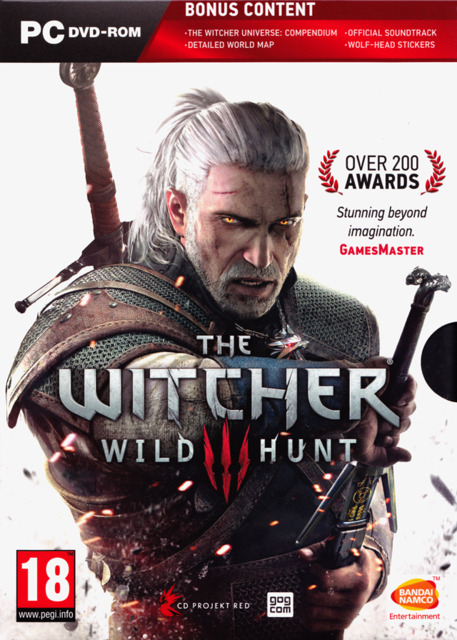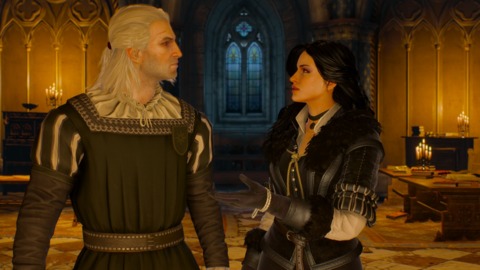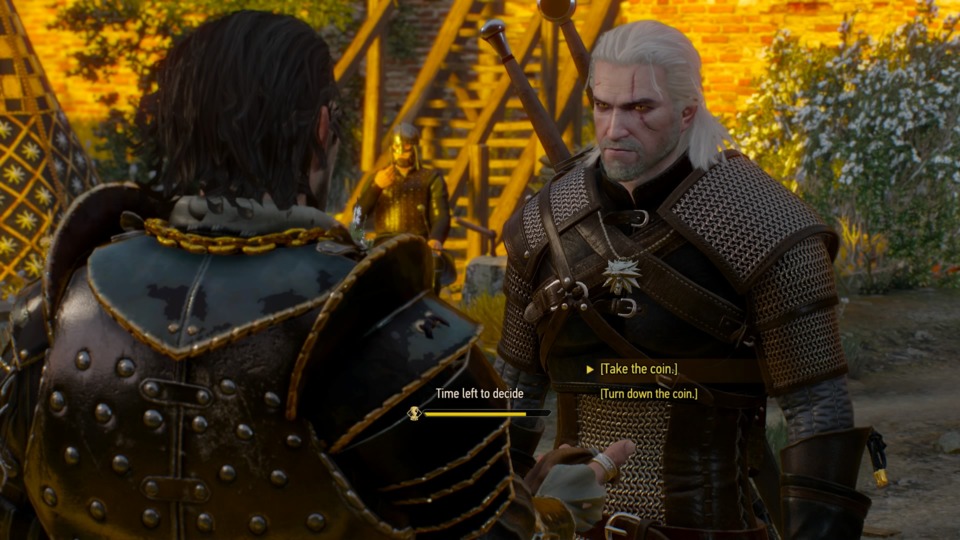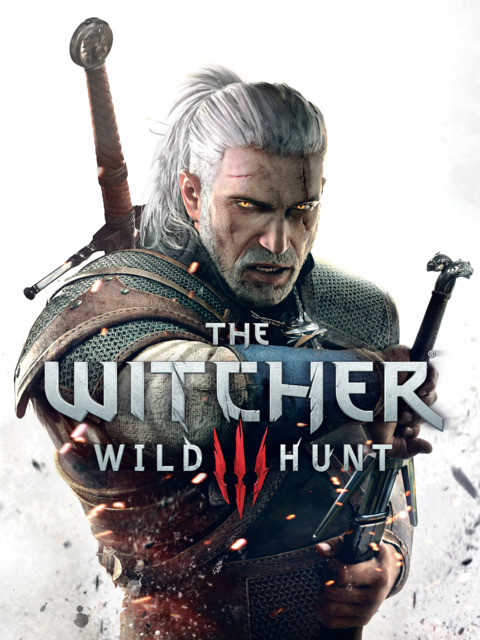
(Light spoilers from the first ~4 hours ahead)
Throughout my nearly 100 hour playthrough of The Witcher 3: Wild Hunt, I couldn’t help but constantly recognize ways in which the game continued to make the story of the main quest feel compelling. A surefire way to break the immersion, sure, but it felt like something truly worthy of recognition. After all, often my least favorite parts of open world RPGs are the main story, yet The Witcher 3 manages to make its main questline feel important and consistently interesting despite the dozens of hours of other content also vying for the attention of the player. This is, of course, a natural extension of the game being all around really damned good, but there’s definitely more to it than this.
It certainly helps that the main objective at any point in the game can be boiled down to a single line without feeling meaningless. It starts off as “Find Yennefer.” It’s pretty clear from the game’s opening moments that Yennefer is a person of great importance to Geralt and that their relationship extends beyond one of mere intimacy, especially since his dream initially depicts a fairly simple and relatively mundane version of their lives together. A lazy and beautiful morning at Kaer Morhen with some of the people Geralt cares for most. Geralt the character clearly feels compelled to find Yennefer but why would the player controlling Geralt feel the same?
The dream continues on to depict his relationship with Ciri, a young girl who takes the role of his protégé but perhaps somewhat of a daughter figure as well considering their apparent closeness. Everything then goes quickly into nightmare territory with Kaer Morhen coming under siege by The Wild Hunt, a force of overwhelming power that Gerald clearly fears, and Ciri being attacked directly.
While those with knowledge of the past games, or perhaps even the books, will recognize all of the shit that Geralt and Yennefer have actually gone through together, these details are unnecessary thanks to the game’s presentation of the dream and Geralt’s brief discussion with Vesemir afterwards, should the player choose to let Geralt open up about it. Geralt even states that he dreamt of he and Yen together at Kaer Morhen despite the fact that she had never even actually been there, making the beginning clearly idealized. In this conversation it also becomes readily apparent that Geralt is worried by the dream although fails to go into much detail about why. One thing is certain though. It seems as though Yennefer is in danger and that danger may extend to Ciri as well.

While the player may not feel the need to meet with Yennefer to ensure her well being as Geralt clearly does, especially if the player is not familiar with the particulars of their past together, the player at this point no doubt has a lot of questions they would like answered. Who are the Wild Hunt? What do they want with Ciri? If Geralt, Yen, and Ciri were so close, why are they no longer together? Clearly rejoining with Yennefer is the best way to get answers. A need to progress the story is now clear to both Geralt and the player.
This is where the difference between Wild Hunt and other open world RPGs becomes more apparent. The character of Geralt has an existing structure without any input from the player. He has a past, personality, and relationships that are all pre-determined. Some of the fine details may differ if a save is imported from prior entries but, for the most part, Geralt is the same guy regardless. This idea is more akin to something like Red Dead Redemption if it were an RPG, or, to a lesser extent, Fable without the Good and Evil morality business. Compare this to Skyrim where the player has created a character entirely their own, whose only past is that they clearly did something to end up on the execution block. As objectives are given to the character in Skyrim, like go to Whiterun and talk with the Jaarl, it is up to the player to conceive why their character would be interested in doing this objective at all.
This is, of course, the point of Skyrim. To give the player options and allow them to play whatever character they wish. This is also why it took me roughly two years of on and off play and numerous character rerolls to even begin the main quest in Skyrim. And once I did I found it very difficult to come up with enough reasons to continue. Without any context in the game as to why the player character might want to undertake such a daunting task as “saving the world”, its difficult to come up with a reason why the player would also care enough, aside from the idea of gaining more power. Skyrim is a great game and one that excels at creating seemingly infinite options for the player. Why then would I choose to save the world when I can do anything?

In The Witcher 3, all sidequests and exploration are in service of, not in opposition to the main narrative. Geralt is a Witcher by trade and would therefore be compelled to hunt monsters in order to make money. Money then affords him additional resources that could aid in his search for Yennefer and, later on, Ciri. Geralt completes honest work for honest pay and does nothing that would be considered out of character or a potentially large waste of time during his search. Compare this to Skyrim where one might choose to become an assassin, get married or build a house while the world ends and you begin to see why it is comparatively easy to feel like you are staying on task in Wild Hunt.
I suppose that’s what makes the main quest in The Witcher 3 such an enjoyable experience to complete. In addition to just being generally well written and chock full of interesting characters, the game structures itself in a way that just about everything you do feels tangentially related to the primary quest somehow. Be it gaining additional resources, making connections, or just helping someone in need, everything seems to just be another stop on the path to rescuing those you care for. All of these factors ensure that the player is continuously invested in the story and never distracted from the main goal. There may be some roadblocks along the way, like needing to kill a Griffin for a guy so he’ll cough up information about Yennefer, but each small goal met has an immediate narrative payoff. This allows The Witcher 3 to feel well paced regardless of its open world and certainly creates a more compelling version of the standard open world main quest.

Log in to comment